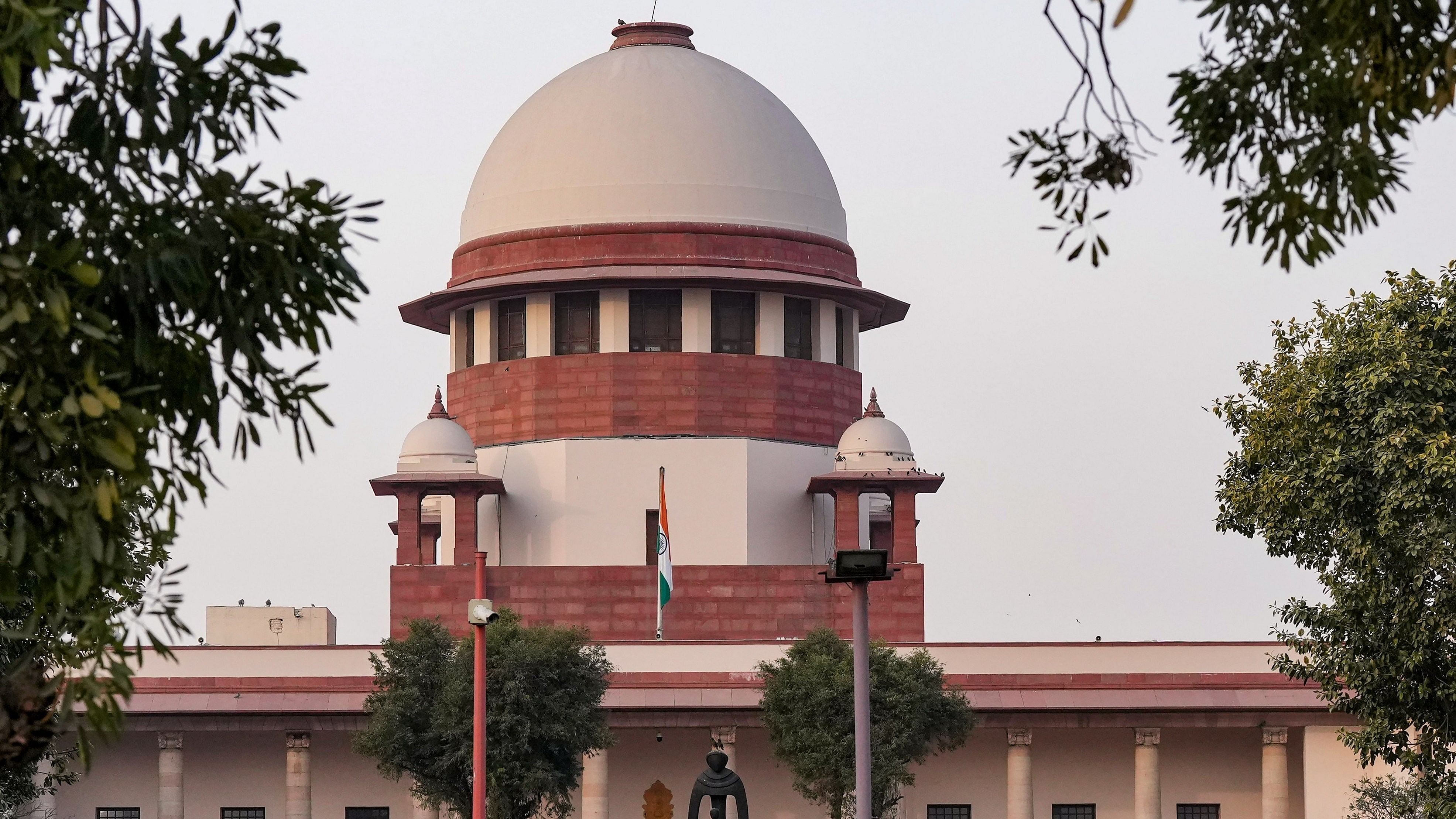
The Supreme Court of India.
Credit: PTI File Photo
New Delhi: The Supreme Court has said every individual must respect the right of others to dissent and an opportunity to peacefully protest against the decisions of the government is an essential part of democracy.
"The right to dissent in a lawful manner must be treated as a part of the right to lead a dignified and meaningful life guaranteed by Article 21. But the protest or dissent must be within four corners of the modes permissible in a democratic set-up," a bench of Justices Abhay S Oka and Ujjal Bhuyan said.
The court on March 7 quashed an FIR lodged against Javed Ahmad Hajam, who hailed from J&K and worked as a professor in a Kolhapur college in Maharashtra, for a WhatsApp status in a group terming 'August 5 -Black Day for Jammu and Kashmir' and celebrating Independence day of Pakistan on August 14.
The bench said describing August 5, the day abrogation of Article 370 for Jammu and Kashmir happened as a “Black Day” is an expression of protest and anguish.
If every criticism or protest of the actions of the State is to be held as an offence under Section 153-A of the IPC, democracy, which is an essential feature of the Constitution, will not survive, the bench said.
The court also said to extend independence day greetings to people of Pakistan is a goodwill gesture and cannot be said to create disharmony or feelings of enmity, hatred or ill-will between different religious groups just because the person doing it belonged to particular religion.
The bench also said now, the time has come to enlighten and educate our police machinery on the concept of freedom of speech and expression guaranteed by Article 19(1)(a) of the Constitution and the extent of reasonable restraint on their free speech and expression. They must be sensitised about the democratic values enshrined in our Constitution, the court said.
The bench noted the appellant intended to criticise the action of the abrogation of Article 370 of the Constitution. He has expressed unhappiness over the said act of abrogation. Those words do not refer to any religion, race, place of birth, residence, language, caste or community. It is a simple protest by the appellant against the decision to abrogate Article 370 of the Constitution and the further steps taken based on that decision, the court said. The Constitution of India, under Article 19(1)(a), guarantees freedom of speech and expression. Under the said guarantee, every citizen has the right to offer criticism of the action of abrogation of Article 370 or, for that matter, every decision of the State. He has the right to say he is unhappy with any decision of the State, the bench said.
"This is an expression of his individual view and his reaction to the abrogation of Article 370 of the Constitution. It does not reflect any intention to do something which is prohibited under Section 153-A. At best, it is a protest, which is a part of his freedom of speech and expression guaranteed by Article 19(1)(a)," the bench said.
"Every citizen of India has a right to be critical of the action of abrogation of Article 370 and the change of status of Jammu and Kashmir. Describing the day the abrogation happened as a “Black Day” is an expression of protest and anguish. If every criticism or protest of the actions of the State is to be held as an offence under Section 153-A, democracy, which is an essential feature of the Constitution of India, will not survive," the bench added.
Since the college teachers, students, and parents were members of the WhatsApp group, the bench said, "We cannot apply the standards of people with weak and vacillating minds. Our country has been a democratic republic for more than 75 years. The people of our country know the importance of democratic values. Therefore, it is not possible to conclude that the words will promote disharmony or feelings of enmity, hatred or ill-will between different religious groups."
Similarly, the bench said if a citizen of India extends good wishes to the citizens of Pakistan on August 14 which is their Independence Day, there is nothing wrong with it. "It is a gesture of goodwill. In such a case, it cannot be said that such acts will tend to create disharmony or feelings of enmity, hatred or ill-will between different religious groups," the bench said."Motives cannot be attributed to the appellant only because he belongs to a particular religion," the bench added.
